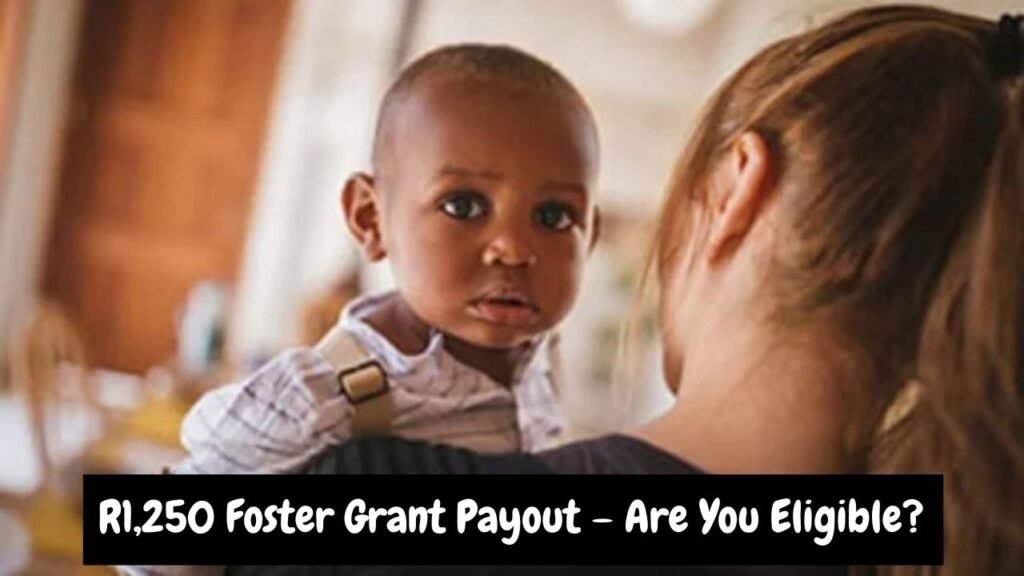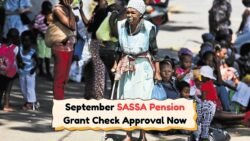SASSA’s September 5th Update: South Africans received promising news as the South African Social Security Agency (SASSA) announced a significant update regarding the Foster Child Grant. As of September 5th, eligible recipients can expect a payout of R1,250. This news comes as a relief to many caregivers who rely on this grant to provide for the needs of foster children. The announcement highlights the government’s ongoing commitment to supporting vulnerable children and the families that care for them. With the rising cost of living, this increase is a welcome development that will positively impact thousands of households across the country.

SASSA’s Foster Child Grant Increase: Impact on South African Households
The recent increase in the Foster Child Grant to R1,250 is a vital support mechanism for many families in South Africa. This grant aims to provide financial assistance to foster parents, helping them cover essential costs such as food, clothing, and educational materials. With the economic challenges posed by inflation and unemployment, the additional funds can significantly enhance the quality of life for children in foster care, ensuring they have access to basic necessities and opportunities for a brighter future.
Foster parents often face unique challenges, balancing their responsibilities while ensuring that children in their care receive the necessary emotional and educational support. The increased grant amount reflects SASSA’s acknowledgment of these challenges and the critical role these caregivers play in society. By providing this financial boost, the agency not only supports individual families but also contributes to the broader goal of social stability and child welfare in South Africa.
Eligibility and Application Process for the R1,250 Foster Child Grant
Understanding the eligibility criteria and application process is crucial for accessing the increased Foster Child Grant. To qualify for the R1,250 grant, applicants must be officially recognized as foster parents by the Department of Social Development. This status is typically granted following a court order, which legalizes the foster care arrangement. Once recognized, foster parents can apply for the grant through SASSA’s official channels.
The application process involves several steps, including gathering necessary documentation such as the court order, birth certificates of the foster children, and proof of the caregiver’s income. Applicants must then submit these documents to their local SASSA office, where the information will be verified. While the process may seem daunting, SASSA provides support through its offices and helplines to assist applicants in completing their submissions accurately and efficiently.
How the Increased Grant Supports Education and Wellbeing
The increased Foster Child Grant directly impacts the educational and overall wellbeing of foster children. With R1,250, caregivers can allocate more resources to educational expenses, ensuring children have the necessary tools to succeed academically. This includes purchasing school uniforms, books, and other learning materials essential for a conducive learning environment.
Beyond academic support, the grant also plays a crucial role in the holistic development of foster children. Adequate nutrition, healthcare, and recreational activities are vital aspects of a child’s growth and wellbeing. The additional funds allow caregivers to provide balanced meals, access to healthcare services, and opportunities for extracurricular activities that contribute to a child’s physical and emotional development.
Future Prospects and Government Initiatives for Foster Care Support
The increase in the Foster Child Grant is part of broader government initiatives aimed at strengthening the support system for foster care in South Africa. As the country continues to grapple with socio-economic challenges, the government’s focus on child welfare remains a priority. Looking ahead, SASSA is expected to explore further enhancements to the grant system, ensuring sustainable support for foster families.
Future prospects may include collaborations with non-governmental organizations and private sectors to provide comprehensive services that address the diverse needs of foster children. These initiatives could encompass educational programs, mental health support, and vocational training, enabling foster children to transition smoothly into adulthood. By investing in such programs, the government aims to foster a nurturing environment that empowers foster children to reach their full potential.



